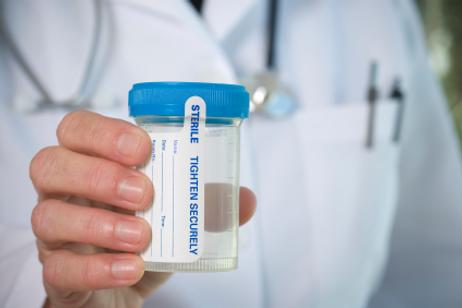Faced with the rising concern regarding teen drug and substance abuse, the Supreme Court granted public schools the legal permission to administer random drug tests for student-athletes in 2002. Since this decision, public schools have contemplated expanding the drug testing scope into their entire student population.
According to USA Today, in the 2005 to 2006 academic year alone, 373 public schools received federal funds for drug testing, which was quite a surge in response compared to the mere 79 public schools just two years prior.
With the rising implementation of drug tests for student-athletes, advocates for drug testing assert that schools should now expand their screening. As the legal barriers that oppose public school drug tests have been overturned, more schools are contemplating the opportunity to expand their drug testing parameters. This shift in policy has some parents, students, and academic leaders concerned about student rights. Can public schools randomly screen their students for drugs without invading a student’s privacy rights?
Drug Testing in Public Schools
While the number of schools randomly testing student-athletes for drug use is rising, the total number of participating public schools only amounts to a rather tiny percentage, with just 28,000 public schools screening students for drugs. Many public schools, as USA Today further reveals, have been reluctant to pursue drug testing policies and actions out of a fear of violating state-mandated rights and laws.
In contrast, advocates for drug testing assert that students can be tested without being unreasonably violated. If a drug test is positive, public schools are prohibited from reporting the drug results to any type of legal office; therefore, students cannot be legally prosecuted if their drug use is only discovered by school officials.
In addition, if a drug test is positive, a student is typically banned from playing sports or engaging in extracurricular activities for a predetermined period of time. Advocates argue that the negative consequence of drug use teaches students to make wiser choices.
This report from CNN examines whether schools can search students for drugs.
Testing the Boundaries
While the drug testing standards practiced by most schools have been somewhat limited, many school leaders have begun expanding their search parameters. For example, the Nettle Creek School District, located in Hagerstown, Indiana, subjected approximately 575 of its students to random drug tests. This random screening included athletes as well as non-athletes of any grade. Furthermore, this district also upheld a policy to rightfully drug test any individual who was choosing to attend a school dance, a class party, or any other school-related event. Opponents of drug testing assert that the Nettle Creek School District is overstepping its rights, as the district is unreasonably suspecting random students of inappropriate behaviors.
Expanding on the controversy, USA Today explores additional debates and concerns in their article “Strip Search Review Tests Limits of School Drug Policy.” As the article reveals, a young 8th grader attending a Safford public school, located in Arizona, was removed from class for a random and invasive drug search: “(the student) was scared and confused when an assistant principal searching for drugs ordered her out of math class, searched her backpack and then instructed an administrative aide and school nurse to conduct a strip search.”
According to the school leaders, the strip search was a valid attempt to protect all students from the dangers of drugs; however, it should be noted that this particular student had never previously been found with drugs, was not caught with drugs during the strip search, and had no inappropriate records or history in her student file. As a result of this, advocates for the student argue that unfair and invasive actions were taken without due cause.
Student Privacy Rights
When exploring the tumultuous debate over students’ rights, many citizens argue that teenagers and adolescents are simply not yet qualified for full constitutional privileges. Specifically, since most teens in public school are not yet 18 years old, schools do not have to grant all students American freedoms and rights, including freedom of speech and the right to privacy.
However, while most public school students are certainly below the legal voting age, many advocates argue that schools are still morally bound to treat all of their pupils with the country’s Constitutional rights.
In fact, some experts argue that prohibiting public school students from exerting their natural rights keeps our children from learning valuable lessons of self-advocacy. As the American Civil Liberties Union of Pennsylvania (ACLU) asserts, all students have an obligation to speak up for what they believe is right; public school leaders, teachers, or community members should never be given the ability to remove a student’s rights.
This video discusses student privacy rights.
Furthermore, ACLUP argues that students need to be aware of their rights on a variety of public issues, including the right to speak freely of one’s school, the right to write or state one’s opinion, the right to express a religious viewpoint, the right to due process if punished, the right to privacy, as well as a long list of additional liberties.
To find out if your child’s school has the legal permission to randomly drug screen your child, consult your school, district, or county student rights manual. Additionally, more details can be found in a school’s code of conduct book. These are publically available to all parents and students who request the information.
Questions? Contact us on Facebook @publicschoolreview













